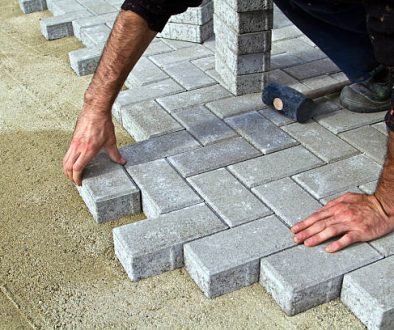Ultimate Guide to Residential Driveways
Introduction
Your driveway is not just a path to your home; it’s an essential part of your property’s curb appeal and functionality. A well-designed and properly maintained residential driveway not only enhances the aesthetic appeal of your home but also adds value and convenience. In this comprehensive guide, we’ll explore the world of residential driveways, covering various types, design considerations, and maintenance tips to help you make the most of this crucial feature.
Choosing the Right Driveway Type
The first step in creating your ideal residential driveway is selecting the right type of material. Each type has its unique characteristics and advantages:
Asphalt Driveways: Asphalt is a popular choice due to its affordability and durability. It provides a smooth, sleek surface that’s easy to maintain.
Concrete Driveways: Concrete driveways offer a clean, modern look and are highly customizable in terms of design. They are known for their longevity.
Gravel Driveways: Gravel driveways are cost-effective and have excellent drainage properties. They provide a rustic charm but may require periodic replenishment.
Paver Driveways: Pavers come in various materials like concrete, clay, or natural stone. They offer a timeless, elegant appearance and are easy to repair if individual units become damaged.
Designing Your Dream Driveway
Once you’ve chosen the material, it’s time to think about the design of your driveway. Consider the following factors:
Driveway Layout and Width: The layout should accommodate the number of vehicles you expect to park. Wider driveways provide more space for maneuvering.
Curves vs. Straight Lines: Curved driveways can be visually appealing and provide better traffic flow. Straight driveways are more straightforward to construct.
Decorative Elements: Add character to your driveway with decorative borders, patterns, or contrasting materials.
Drainage Solutions: Proper drainage is crucial to prevent water from pooling on your driveway. This can be achieved with sloping, channels, or permeable materials.
- Installation and Construction
The installation of your residential driveway is a critical phase that determines its longevity and performance. Consider these factors:
DIY vs. Professional Installation: While DIY projects can be cost-effective, professional installation ensures proper techniques, materials, and adherence to local regulations.
Preparing the Base: A solid foundation is essential. Proper excavation, compaction, and base material selection are crucial for stability.
Choosing the Right Materials: Use high-quality materials that suit your climate and traffic requirements.
Proper Compaction: Adequate compaction of the materials ensures a stable and even surface.
- Maintaining Your Residential Driveway
Regular maintenance is key to preserving the beauty and functionality of your driveway:
Regular Cleaning: Remove debris, leaves, and dirt to prevent staining and deterioration.
Sealing and Resurfacing: Periodically sealing your driveway protects it from the elements. Resurfacing can refresh its appearance and address minor imperfections.
Repairing Cracks and Potholes: Promptly fix any cracks or potholes to prevent them from worsening.
Winter Maintenance: Clear snow and ice promptly to prevent slips and damage to the surface.
- Enhancing Curb Appeal
Make your residential driveway a standout feature:
Landscaping Around the Driveway: Soften the edges with plants, shrubs, or trees that complement your home’s style.
Lighting Options: Install lighting along the driveway for safety and aesthetics, choosing from a range of styles and technologies.
Creative Design Ideas: Consider unique patterns, color schemes, or materials to make your driveway stand out.
Sustainable Driveway Solutions: Explore eco-friendly materials and permeable surfaces that allow rainwater to seep into the ground.
- Safety Measures
Safety should always be a top priority:
Non-Slip Surfaces: Choose materials with good traction, especially if you live in an area with frequent rain or snow.
Clear Markings and Signage: Ensure proper markings and signage for direction and safety.
Proper Lighting: Adequate lighting provides visibility at night, reducing the risk of accidents.
Snow and Ice Removal: Have a plan for winter maintenance, including snow removal and de-icing.
- Cost Considerations
Finally, consider the costs associated with your residential driveway:
Initial Installation Costs: These vary depending on the type of driveway, materials, and any additional features.
Long-term Maintenance Expenses: Different materials have varying maintenance needs and costs.
Return on Investment (ROI): A well-maintained driveway can add value to your property and enhance its marketability.
- Conclusion
Your residential driveway is more than just a practical necessity; it’s an opportunity to enhance your home’s beauty, functionality, and value. By choosing the right type, designing it thoughtfully, and maintaining it properly, you can enjoy a driveway that not only serves its purpose but also becomes an attractive and enduring feature of your property. Whether you prefer the classic elegance of concrete or the affordability of gravel, a well-crafted driveway can elevate the entire look and feel of your home.



